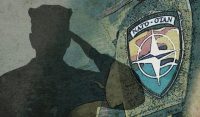Nato must increase spending to protect Europe’s eastern and southern borders
Today's Europe is an island of stability in a sea of conflict. To the east, Russia has added its own military forces to the separatist conflict that it manufactured in Ukraine. To the south, growing instability and extremism are fuelled by fragile states and sectarian strife.
Nato greatest responsibility is to guard and defend our allies the 28 member states against any attack. We also need to strengthen our capacity to deal with crises, and to operate with partners to preserve the international rules-based order.
As we gather for our summit in Wales subsequent week, our response to Russia aggression and to the crisis in Iraq will be crucial topics on the agenda.… Seguir leyendo »




